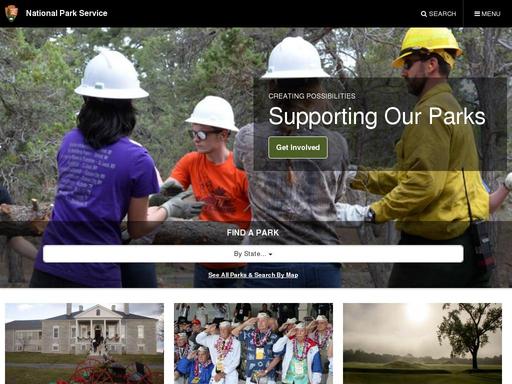Rate Cuyahoga Valley National Park
Learn and Explore
Since 1916, the National Park Service has been entrusted with the care of our national parks. With the help of volunteers and partners, we safeguard these special places and share their stories with more than 275 million visitors every year. But our work doesn’t stop there.
We are proud that tribes, local governments, nonprofit organizations, businesses, and individual citizens ask for our help in revitalizing their communities, preserving local history, celebrating local heritage, and creating close to home opportunities for kids and families to get outside, be active, and have fun.
Taking care of the national parks and helping Americans take care of their communities is a job we love, and we need—and welcome—your help and support.
Our Mission
The National Park Service preserves unimpaired the natural and cultural resources and values of the National Park System for the enjoyment, education, and inspiration of this and future generations. The Park Service cooperates with partners to extend the benefits of natural and cultural resource conservation and outdoor recreation throughout this country and the world.
Frequently Asked Questions
How do I obtain a park entrance pass?
Only 118 of your 417 park sites charge entrance fees. You can obtain park entrance passes by visiting a park site that charges an entrance fee. Entrance fee sites have passes available; we recommend calling a park prior to your visit. (See the park search to locate a specific park.) There are a number of entrance passes available, including park-specific passes as well as passes that offer entrance to more than 2,000 federal recreation sites in addition to the national parks (Annual, Military, Senior, 4th Grade, Access, and Volunteer passes). Learn more about the America the Beautiful – The National Parks and Federal Recreational Lands Pass.
About this location:
National Park
Operating Hours & Seasons
Cuyahoga Valley National Park
Cuyahoga Valley National Park is open everyday, 24 hours a day with the following exceptions: Virginia Kendall Ledges, Octagon, and Lake close from dusk until morning opening.
Standard Hours
- Sunday:Open 24 hours
- Monday:Open 24 hours
- Tuesday:Open 24 hours
- Wednesday:Open 24 hours
- Thursday:Open 24 hours
- Friday:Open 24 hours
- Saturday:Open 24 hours
Fees & Passes
Entrance Fees:
- $0.00 – Entrance
There is no entrance fee.
About
Cuyahoga Valley National Park
Though a short distance from the urban areas of Cleveland and Akron, Cuyahoga Valley National Park seems worlds away. The park is a refuge for native plants and wildlife, and provides routes of discovery for visitors. The winding Cuyahoga River gives way to deep forests, rolling hills, and open farmlands. Walk or ride the Towpath Trail to follow the historic route of the Ohio & Erie Canal.
Directions
Plane Cleveland Hopkins International Airport and Akron-Canton Regional Airport offer many daily flights to the area. Car rentals are available at both airports. Bus & Train Bus stations are located in downtown Cleveland and Akron. The Amtrak station is in downtown Cleveland. Car The park is easily accessible by car from all directions. A good place to start your visit is at Boston Store Visitor Center located at 1550 Boston Mills Road, Peninsula, Ohio 44264. (81° 33.512′ W) (41° 15.803′ N).
Visitor Centers
Boston Store Visitor Center
Boston Store Visitor Center is a good place to start your visit at Cuyahoga Valley National Park. Meet park staff, get questions answered, and learn more about park scheduled events and places to visit. There is a short park video available upon request. You can pick up relevant brochures, maps, passport stamps, purchase park-themed merchandise, and America the Beautiful – National Parks and Federal Recreational Lands Passes. Canal Exploration Center
The park’s newest attraction was once used as a tavern, a general store, a residence, and a park visitor center. This historic building now features in-depth, interactive Canal Era exhibits for children and adults. Hunt House
Hunt House offers child-friendly nature exhibits, a rest area along the Towpath Trail, and information about nearby attractions.
Weather
Spring’s rain and warming temperatures bring new leaves on trees, blooming wildflowers, and visitors anxious get out on the trail. Summer temperatures range from 49 to 95 degrees F and can be humid. Dressing in layers is advisable. Fall temperatures can range from low 70s during the day to freezing during the night. Fall foliage often peaks in mid-October. Winter weather conditions can rapidly change, due to the lake effect snow from Lake Erie. Temperatures vary from mid-30s to below zero.









